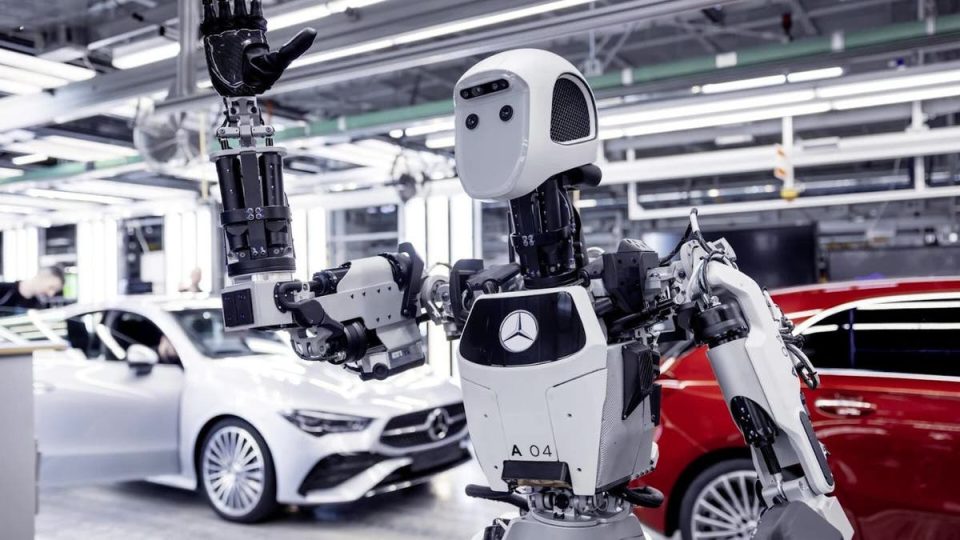You just knew this was coming. No doubt, you’ve heard about the staffing shortages in factories. And guess what? The solution seems to be robots.
At Mercedes-Benz Manufacturing in Hungary, they’ve swapped out some of their human workers for humanoid robots right there on the factory floor. These futuristic robots are produced by Apptronik, a Texas-based company.
Mercedes-Benz and Apptronik have teamed up to explore how these robots can lend a helping hand to their human counterparts. The goal? To tackle staffing challenges during the manufacturing process.
CLICK TO GET KURT’S FREE CYBERGUY NEWSLETTER WITH SECURITY ALERTS, QUICK VIDEO TIPS, TECH REVIEWS AND EASY HOW-TO’S TO MAKE YOU SMARTER
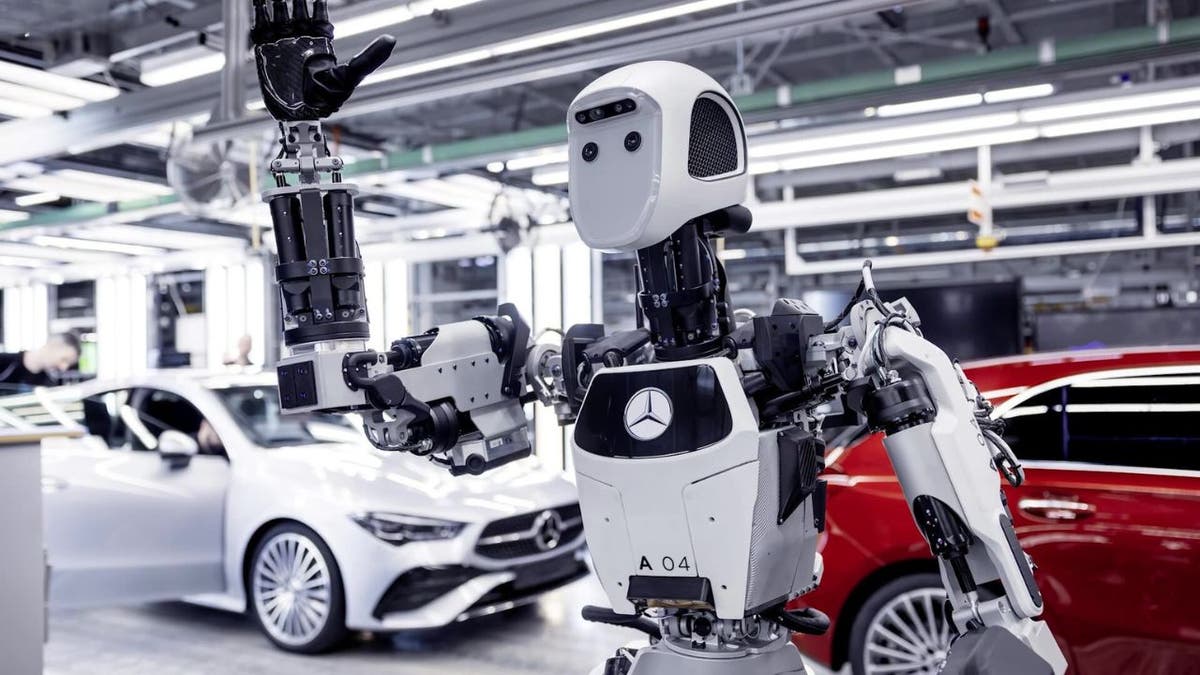
Apollo, the humanoid robot at a Mercedes-Benz factory. (Apptronik)
The humanoid robot workmate
The humanoid robots are called Apollo. Standing at a height of 5 feet 8 inches and weighing in at 160 pounds, Apollo mirrors the proportions of a human worker. Its mission? To collaborate seamlessly with its human counterparts while tackling physically demanding tasks.
WHAT IS ARTIFICIAL INTELLIGENCE (AI)?
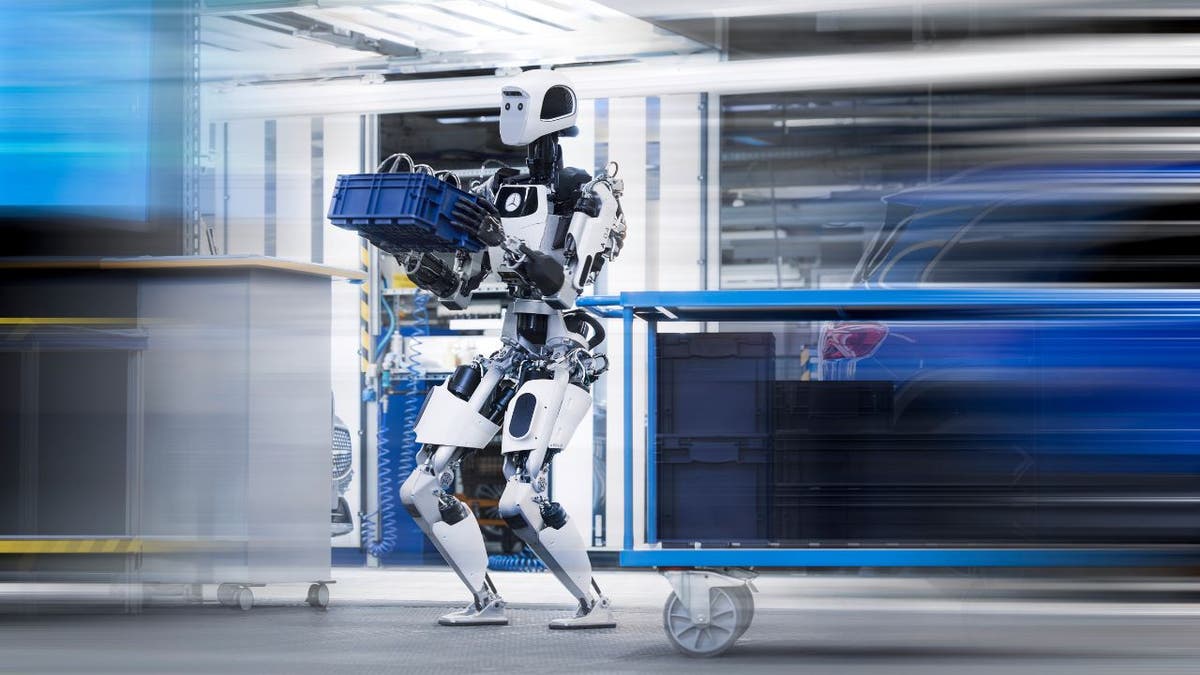
Apollo the robot works at a Mercedes-Benz factory. (Apptronik)
MORE: AI ROBOT THAT CAN TRIM, EDGE AND BLOW YOUR LAWN FOR YOU
The robot’s strength and agility
Apollo’s powerful arms can lift up to 55 pounds at a time, making it a valuable asset in an assembly line environment. Its swappable battery ensures a runtime of approximately four hours per pack, enough to keep it going through a productive shift.
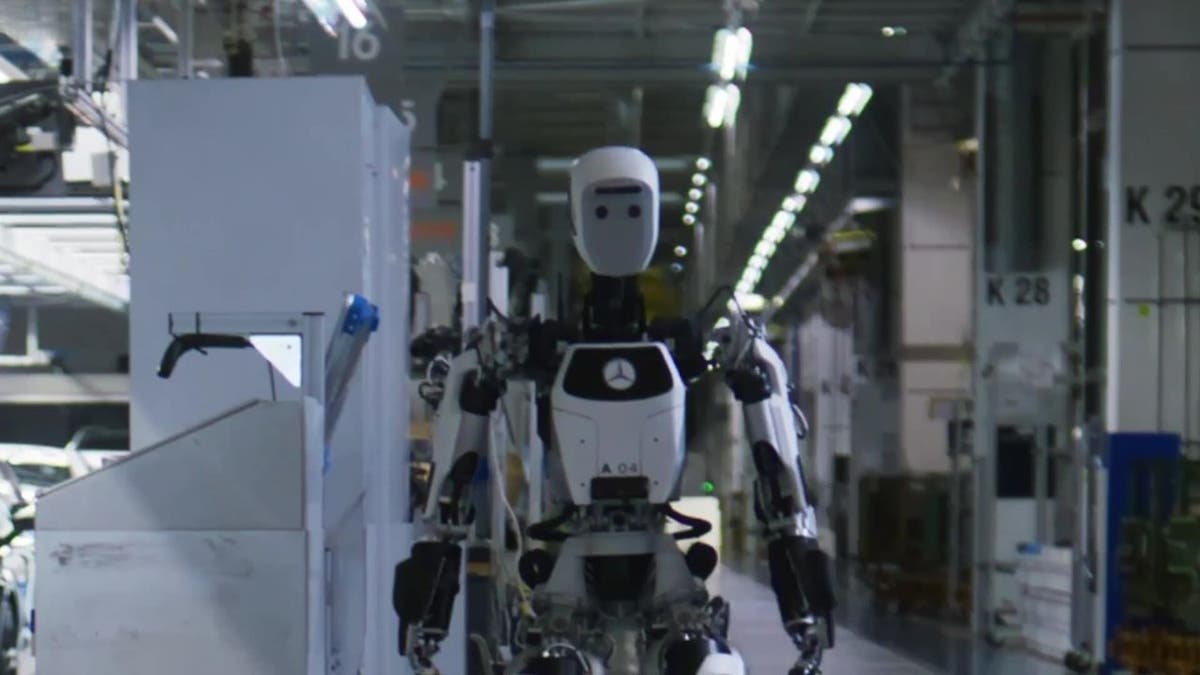
Apollo the humanoid robot does work in a Mercedes-Benz factory. (Apptronik)
MORE: THIS ROBOT INVENTION CAN DO BACKFLIPS BETTER THAN A GYMNAST
Is the robot safe?
Apollo’s unique force control architecture allows it to operate safely alongside humans. Think of it as a collaborative robot, not an industrial behemoth. No need to barricade off sections of the factory; Apollo integrates seamlessly into existing spaces.
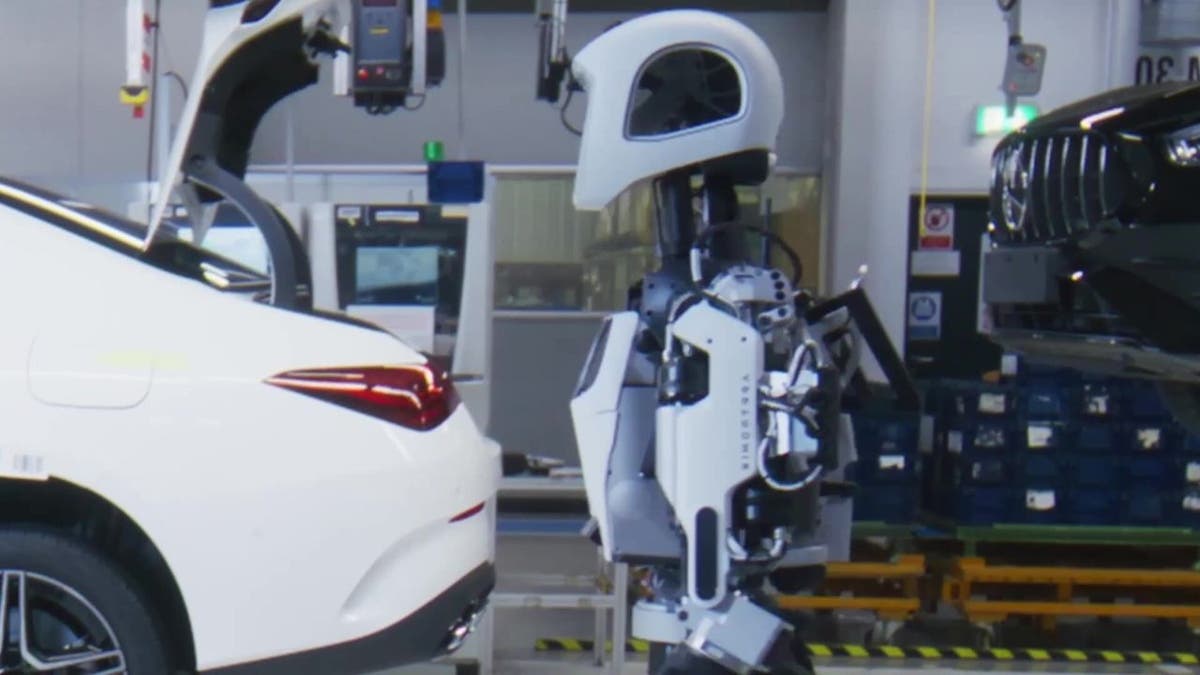
Apollo the robot works on a car at a Mercedes-Benz factory. (Apptronik)
MORE: THIS HUMANOID ROBOT IS NOW CAPABLE OF FULL CONVERSATIONS
The robot’s applications in manufacturing facilities
Apollo’s first task? Logistics. It shuttles parts to the production line, ensuring workers have what they need to assemble vehicles. So, for example, Apollo delivers assembly kits while simultaneously inspecting components. Later in the process, Apollo takes on another critical role: delivering totes of kitted parts. These neatly organized containers contain everything necessary for specific assembly steps.
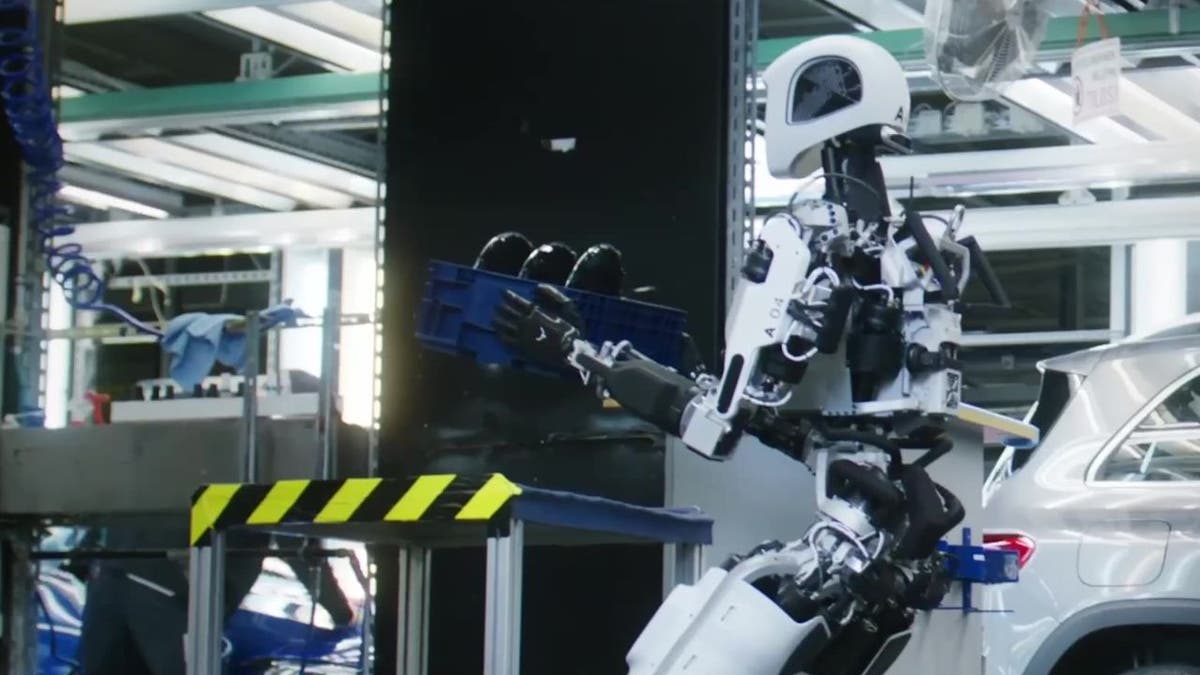
Apollo the robot at a Mercedes-Benz factory. (Apptronik)
How the robot is bridging the labor gap
Mercedes-Benz faces a common challenge: finding reliable workers for physically demanding, repetitive, dull tasks. That’s where Apollo comes in and bridges the gap. The company says these robots allow them to automate tasks and free up skilled employees to focus on higher-value work. They say it’s a win-win for productivity and job satisfaction. However, it’s unclear how many robots will be used at their factories.
GET FOX BUSINESS ON THE GO BY CLICKING HERE
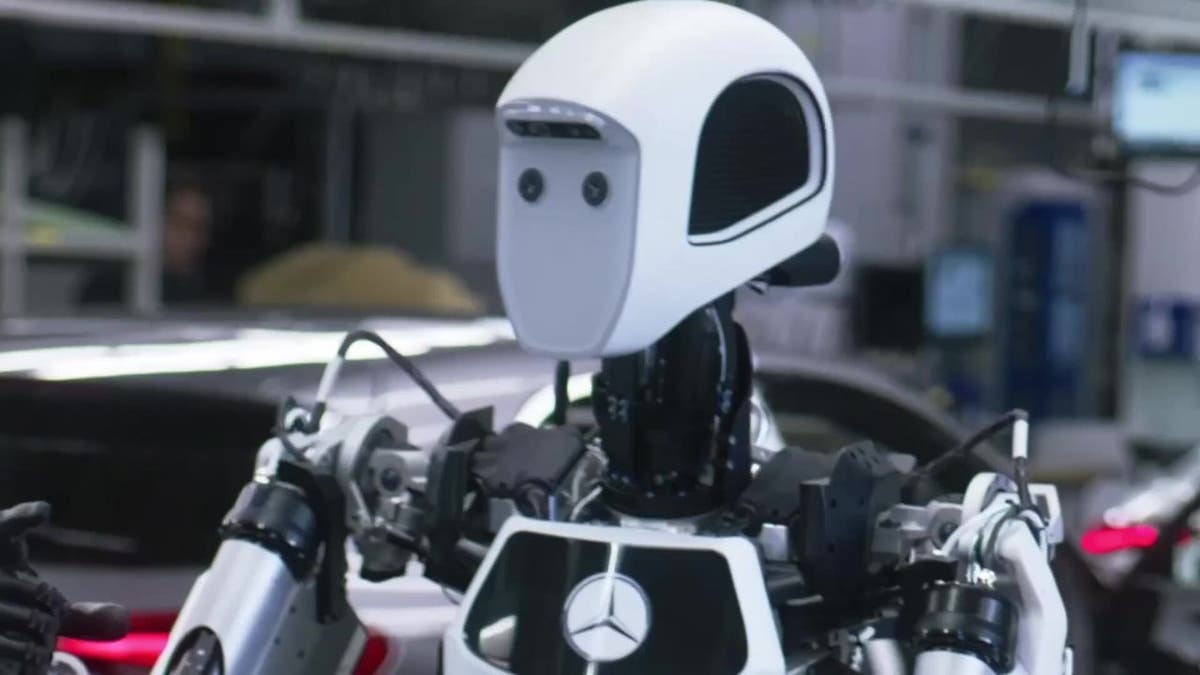
A close-up of Apollo the humanoid robot on a Mercedes-Benz factory floor. (Apptronik)
Robots on the assembly line
But Mercedes-Benz isn’t the only player in this game. Earlier this year, BMW made waves by partnering with California-based Figure to put its robots to the test. The star of the show? Figure’s 01 robot, currently hard at work in BMW’s U.S. factories located in Spartanburg, South Carolina.
Kurt’s key takeaways
Both Mercedes-Benz and BMW are still fine-tuning their approach, figuring out how best to leverage these robots. The goal? To automate those tricky, unsafe or downright tedious tasks that have traditionally fallen on human shoulders. From delivering and inspecting parts to working alongside skilled workers, these robots are poised to revolutionize the assembly line.
CLICK HERE TO GET THE FOX NEWS APP
Is this a step in the right direction, or is this just another way to replace human jobs with automation, potentially leading to job displacement? Let us know by writing us at Cyberguy.com/Contact
For more of my tech tips & security alerts, subscribe to my free CyberGuy Report Newsletter by heading to Cyberguy.com/Newsletter
Ask Kurt a question or let us know what stories you’d like us to cover.
Answers to the most-asked CyberGuy questions:
Copyright 2024 CyberGuy.com. All rights reserved.
